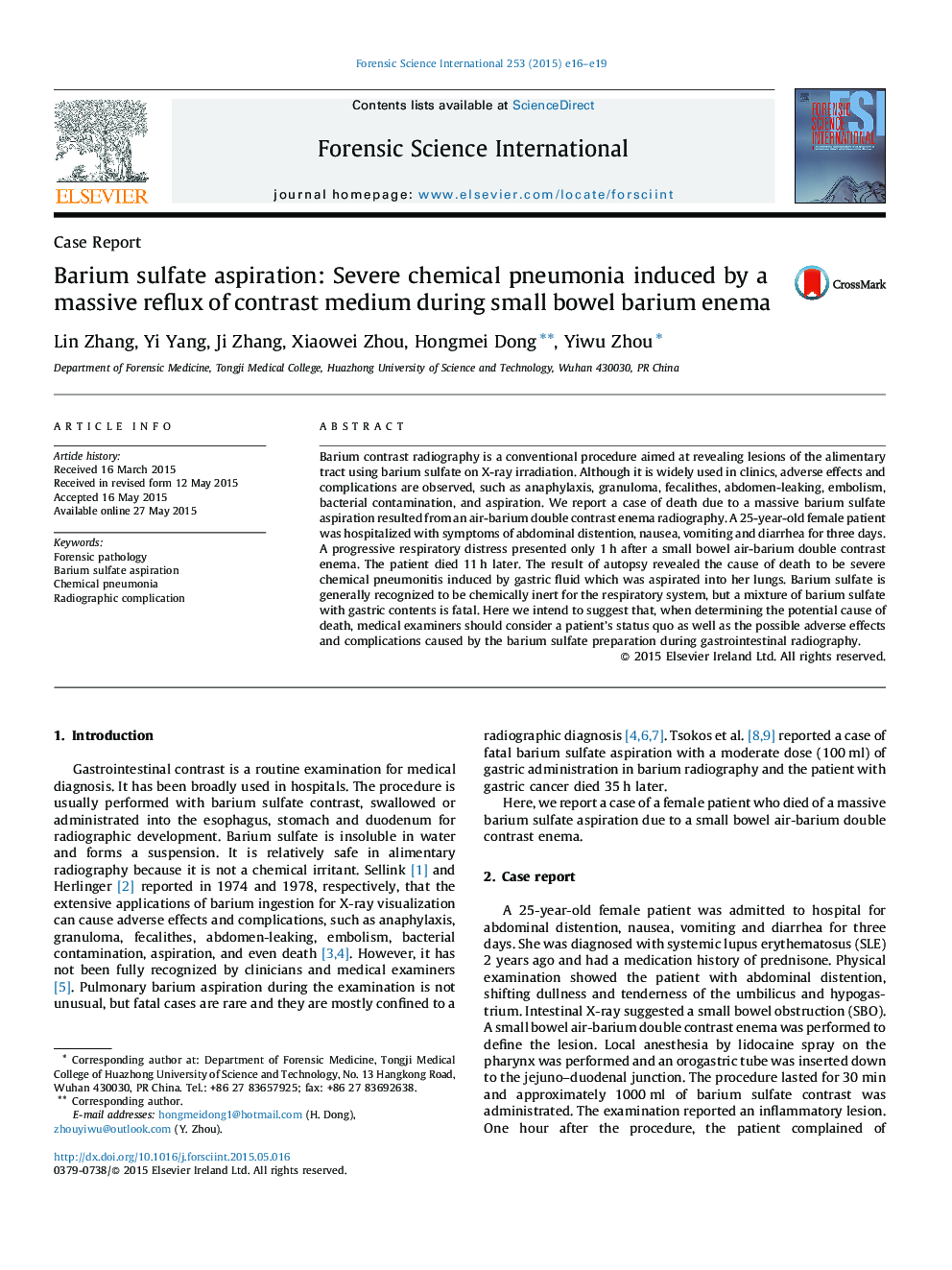| Article ID | Journal | Published Year | Pages | File Type |
|---|---|---|---|---|
| 95279 | Forensic Science International | 2015 | 4 Pages |
•We report a case of lethal chemical pneumonitis induced by barium contrast aspiration.•Pathologic findings of pulmonary barium sulfate aspiration are presented.•Fatal complications related to barium contrast application are discussed.
Barium contrast radiography is a conventional procedure aimed at revealing lesions of the alimentary tract using barium sulfate on X-ray irradiation. Although it is widely used in clinics, adverse effects and complications are observed, such as anaphylaxis, granuloma, fecalithes, abdomen-leaking, embolism, bacterial contamination, and aspiration. We report a case of death due to a massive barium sulfate aspiration resulted from an air-barium double contrast enema radiography. A 25-year-old female patient was hospitalized with symptoms of abdominal distention, nausea, vomiting and diarrhea for three days. A progressive respiratory distress presented only 1 h after a small bowel air-barium double contrast enema. The patient died 11 h later. The result of autopsy revealed the cause of death to be severe chemical pneumonitis induced by gastric fluid which was aspirated into her lungs. Barium sulfate is generally recognized to be chemically inert for the respiratory system, but a mixture of barium sulfate with gastric contents is fatal. Here we intend to suggest that, when determining the potential cause of death, medical examiners should consider a patient's status quo as well as the possible adverse effects and complications caused by the barium sulfate preparation during gastrointestinal radiography.
Graphical abstractFigure optionsDownload full-size imageDownload high-quality image (464 K)Download as PowerPoint slide
